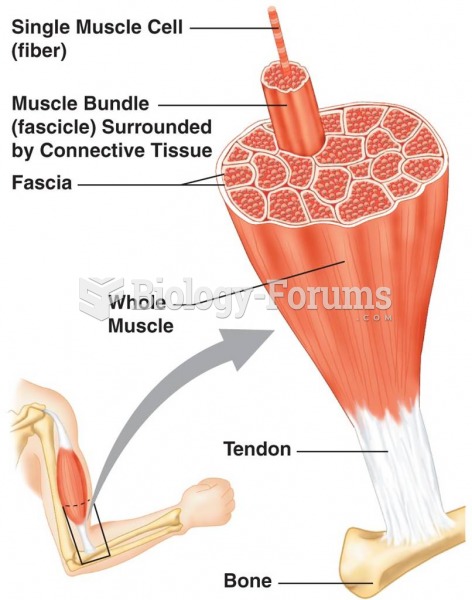Answer to Question 1
Correct Answer: 3
Rationale 1: Chlorpromazine (Thorazine) is not used to treat dystonia.
Rationale 2: Muscle spasms are difficult to fake.
Rationale 3: Signs of acute dystonia associated with fluphenazine include severe muscle spasms of the back, neck, tongue, and face. It can be so severe as to cause laryngospasm. When treated with diphenhydramine (Benadryl), it can be reversed within minutes.
Rationale 4: The client is having difficulty speaking. This would not be an appropriate action.
Global Rationale: Signs of acute dystonia associated with fluphenazine include severe muscle spasms of the back, neck, tongue, and face. It can be so severe as to cause laryngospasm. When treated with diphenhydramine (Benadryl), it can be reversed within minutes. Chlorpromazine (Thorazine) is not used to treat dystonia. Muscle spasms are difficult to fake. The client is having difficulty speaking; therefore, engaging the client in a conversation would not be an appropriate action.
Answer to Question 2
Correct Answer: 2
Rationale 1: Decreasing secretions is not the reason for administering this medication to a client with dystonia.
Rationale 2: Diphenhydramine (Benadryl) is used to reverse the acute dystonia before the client has respiratory distress caused by laryngospasms.
Rationale 3: The client does not display symptoms of anaphylaxis.
Rationale 4: Sedation will not help the client with dystonia.
Global Rationale: Diphenhydramine (Benadryl) is used to reverse the acute dystonia before the client has respiratory distress caused by laryngospasms. Decreasing secretions is not the reason for administering this medication to a client with dystonia. The client does not display symptoms of anaphylaxis. Sedation will not help the client with dystonia.







